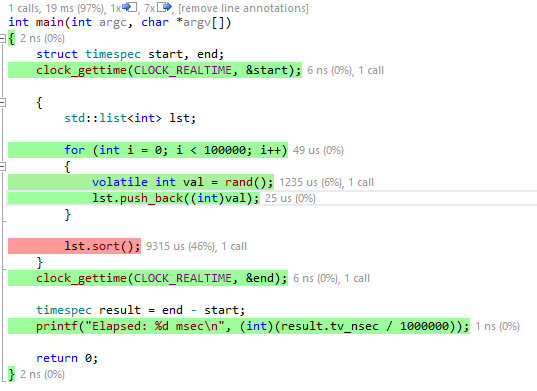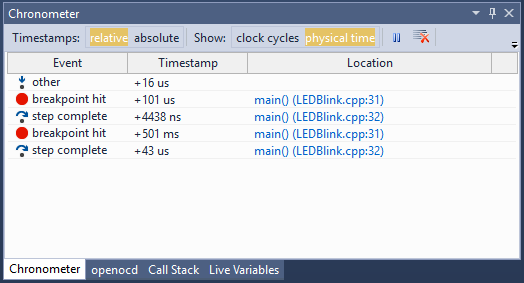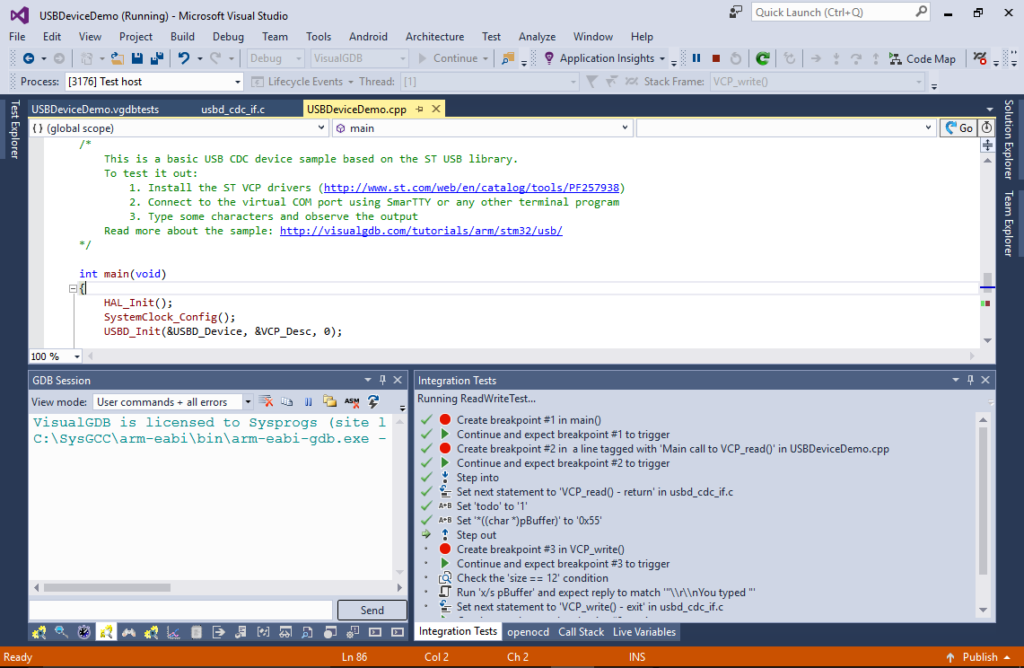Today we are proud to announce the release of Analyzer2Go 2.0 – our product that turns development boards into powerful logic analyzers. This release adds support for the Cypress SuperSpeed Explorer Kit that is capable of streaming data to the computer over the ultra-fast USB 3.0 interface at >350MB/sec, resulting in reliable 200MHz sampling rate when using 8 channels or 100 MHz when using 16 channels. The SuperSpeed Explorer Kit is the perfect board to be used as a logic analyzer due to its highly programmable peripheral interface module and in this post I will explain to you how it works and how you can use it to add extremely fast connectivity to your designs. Continue reading Turning the Cypress Super Speed Explorer Kit into a Continuous 200MS/s Logic Analyzer
Continue reading Turning the Cypress Super Speed Explorer Kit into a Continuous 200MS/s Logic Analyzer
All posts by Ivan Shcherbakov
Announcing VisualGDB 5.4 Preview 3 with Segger J-Trace support
Today we are excited to announce the release of VisualGDB 5.4 Preview 3 that adds support for tracing ARM devices with Segger J-Trace. Tracing is a powerful debugging technique that lets you track each and every instruction executed by the target CPU without ever stopping it, or instrumenting any code.
In this post I will show you how to use tracing to step back in time, reconstructing the code path leading to an otherwise untraceable crash and how to see the code coverage for your embedded projects in real time and without any instrumentation overhead.
Continue reading Announcing VisualGDB 5.4 Preview 3 with Segger J-Trace support
Announcing VisualGDB 5.4 Preview 1
Today we are proud to announce the release of VisualGDB 5.4 Preview 1. This main highlight of this preview build is the new powerful and seamless way to develop ESP32 firmware using the ESP-IDF framework – the advanced ESP-IDF Project Subystem.
Announcing VisualKernel 3.0 Beta 1
Today we are proud to announce the release of VisualKernel 3.0 Beta 1. The new release introduces a number of usability features and I will give you an overview of them in this post.
SmarTTY 3.0 is out
Today we are proud to release SmarTTY 3.0 – our free multi-tabbed SSH client. In this version we have redesigned the main window to look better on modern high resolution displays and introduced the new smart terminal mode that greatly boosts the productivity of work done over SSH by extending the normal terminal experience with a few useful graphical elements:
In this post I will give you an overview of the new features.
10 reasons to try out VisualGDB 5.3
Today we happy to announce the final release of VisualGDB 5.3. Over the past several months and 8 preview builds we have introduced and fine-tuned multiple usability-focused improvements to your cross-platform development workflow and I will give you a quick overview of them in this post.
Explaining project format changes in VisualGDB 5.3
The latest VisualGDB 5.3 release introduces a few improvements in the project format that avoid hardcoding of the paths and settings in the project files and make toolchain management on different machines easier. However some of those changes are not backward compatible with VisualGDB 5.2 and earlier, making it harder to update to v5.3 if some of the developers in your organization are still using v5.2. In this post I will show you the project file format differences between VisualGDB 5.3 and 5.2 and will provide examples on making v5.3 projects compatible with the older VisualGDB versions.
Continue reading Explaining project format changes in VisualGDB 5.3
Announcing VisualGDB 5.3 RC1
Today we are proud to announce the release of VisualGDB 5.3 Release Candidate 1. This version introduces profiling and code coverage support for Linux projects, Linux Dynamic Analysis, advanced code annotation and a few other improvements. In this post I will give you an overview of the new features:
VisualGDB 5.3 Preview 8 is out
Today we are proud to announce the release of VisualGDB 5.3 Preview 8. This build mainly focuses on stability and usability improvements, such as better integration with Kinetis KSDK 2.x and support for importing Keil projects, however it also introduces a feature that greatly simplifies and reduces the overhead of analyzing precise timing of your embedded code – Chronometer.
Introducing Embedded Integration Tests
VisualGDB started supporting unit tests in version 5.2. Having out-of-the-box support for CppUTest, GoogleTest and TinyEmbeddedTest, VisualGDB made it easy to check whether every separable component of your system works. However the size overhead and the necessity to create a separate test project makes it hard to use them for testing the behavior of the entire embedded system.
So in VisualGDB 5.3 Preview 7 we introduced a new mechanism called Embedded Integration Tests that does exactly that – lets you conveniently verify the behavior of your firmware without any significant overhead.


